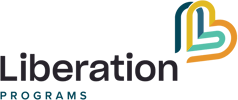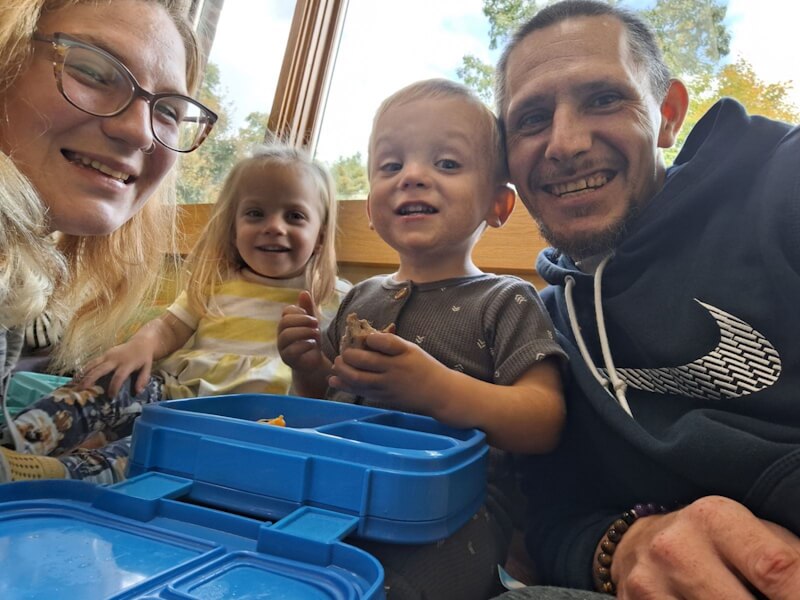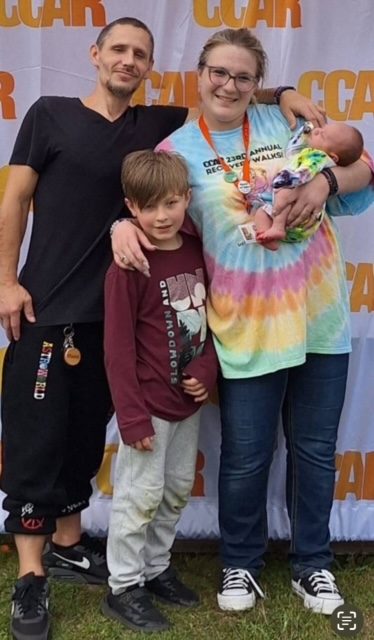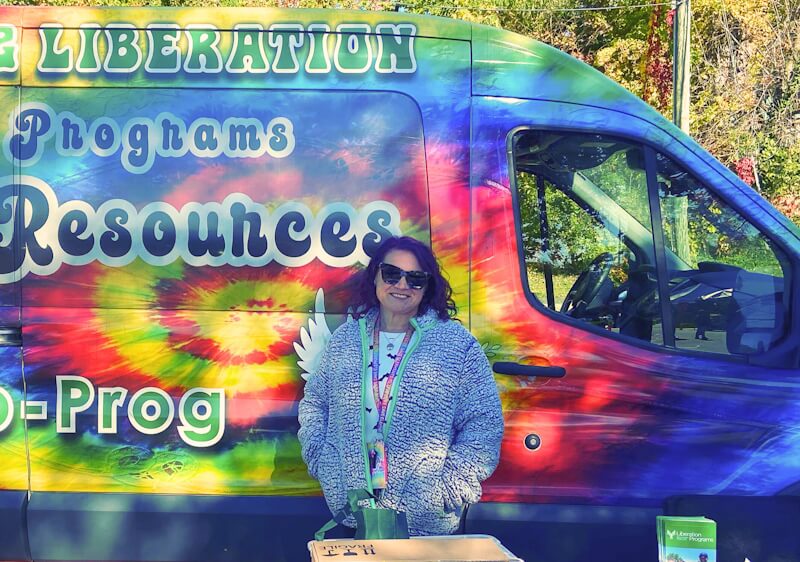ELIZABETH’S STORY
Elizabeth’s Story
My name is Elizabeth, and if you had asked me a year ago if I’d ever see 30, I wouldn’t have had an answer for you. I started using drugs when I was just 13. It started small—just trying to escape, trying to feel something other than the emptiness inside me. But it grew to control my life for nearly two decades. There were countless cycles of getting clean and falling back in, jail visits, countless promises I couldn’t keep. But today, I’ve been in recovery for eight months, and I believe in a future again.
I have always had the support of amazing women in my life. My mom is my best friend. No matter how many times I stumbled, she was always there, picking me up, believing that I could do better, even when I didn’t believe it myself. When I had my first child, my mother-in-law selflessly took care of him when I couldn’t. It broke my heart to admit I wasn’t capable of being his mom. Deep down, I knew he was better off with her while I was using. She kept him safe and kept that piece of my world intact while I fell apart, especially when my son’s father died from an overdose.
My darkest days were during the pandemic. I was living in what people called “tent cities”—these makeshift communities that popped up as more people lost everything and ended up on the streets. It was like a nonstop music festival, but with no music—just people surviving, barely. There was a barter system, a way to trade whatever you had for what you needed. Food, drugs, clothes. Sometimes, I sold myself just to get by, to keep that next high within reach.
I met Jesse there, on my first day. We clicked instantly, like we’d known each other forever. In that chaos, he became my anchor. We were inseparable, sharing everything—our fears, our hopes, our drugs. He felt like my soulmate in a world where nothing else made sense.
When I found out I was pregnant with twins, I tried to push down the fear and shame. But I was still using, and when they were born, the Department of Children and Families took them away. I’ll never forget the day I delivered them, lying there in that hospital bed, feeling the weight of everyone’s stares. I could almost hear their thoughts—“What kind of mother are you?” It tore me apart. But back then, the shame just made me angry, and that anger pushed me further from the help I needed.
I ran hard after that. It was like I was trying to outrun everything—the guilt, the loss, the fear. But there came a moment, living on the street again, when I realized I couldn’t keep going like this. I knew I was one minute away from dying—whether from an overdose or just the violence of the streets.
“That’s when I met Michelle Lis, an outreach specialist from Liberation Programs. She saw me, really saw me, in a way that no one had in a long time. She believed in me, even when I didn’t.”
Michelle talked to me about help, but she never pushed. She told me that when I was ready, she’d be there. And she was. When Jesse and I finally decided we couldn’t do it on our own anymore, Michelle got us both into detox. It was the hardest thing I’d ever done, and right in the middle of it, I found out I was pregnant again.
This time, though, I knew I needed to be there for my baby. I didn’t want to lose another piece of my heart. Michelle helped me get into the Families in Recovery Program (FIRP) at Liberation Programs. At first, I fought against it. It felt like prison—three phone calls a week for 15 minutes each, no contact with my family beyond that. I missed Jesse and my mom so much it hurt. But slowly, I realized this place wasn’t like any of the other programs I’d been in. They weren’t just teaching me about recovery—they were teaching me to live.
I learned how to do things I never thought I’d need to know—like how to budget, how to cook, even how to fill out a job application. At first, it felt strange, like I didn’t belong in a life that had structure and stability. But then I started to feel something new—a sense of purpose. I began to see myself not just as a survivor, but as a mother.
One day, in a counseling session, someone said something that hit me like a lightning bolt: “To you, it’s just everyday life. To your children, it’s shaping their childhood.” For the first time, I could see myself through my kids’ eyes, and I realized I wanted to give them something better. I wanted them to have a mom they could be proud of. And because of the team at Liberation, I am able to see my twins, and have the hope of getting full custody of them again.
It’s been eight months now, and every day, I feel a little further from the life I left behind. I wouldn’t have made it without my mom, who never stopped believing in me, no matter how many times I fell. And I wouldn’t be here without Michelle and the team at Liberation—Andrea, Donna, Kim, Silvia, Rosemary—they all helped me find my way back to myself. They showed me that it’s the relationships you build that make recovery possible.
I’m training now to become a recovery coach. I want to be that person for other women—the person who shows up when they think no one ever will, who believes in them when they can’t believe in themselves. My dream is to have my whole family under one roof, to be a mom like my mom has always been to me, and to advocate for mental health, so people like me know they’re not alone.
I’m not running anymore. I’m building something real, something that feels like hope. And for the first time in a long time, I’m starting to feel like I deserve it.



